It’s getting hot out there: Energy Saving Tips
You’ve probably noticed – our St. Louis environment is heating up as summer settles in. As you are trying to beat the heat while minimizing your contributions to global warming, consider these tactics:
Raise your thermostat – if you like it cold, try to increase your tolerance by raising the temperature one or two degrees every couple of days until you reach about 78 degrees. Think about how hard your air conditioner has to work to drop your home temperature 30 or 40 degrees when it is over 100 degrees outside! Heating and cooling represents about 50% of your home energy consumption (and energy bill), so starting here is key. Replace a manual thermostat with a programmable one (it will pay for itself in no time!) or adjust the temperature at night and when you leave for long periods of time (send it up to 85 when you are at work or on vacation). Find out how much you can save by simply adjusting your thermostat using this online calculator.
Use ceiling fans or other types of circulating fans – you’ll feel cooler and be able to keep your air conditioner thermostat a tad bit higher.
Use off-peak energy. Utility companies have to prepare to provide electricity for peak energy use times, which usually occur in the hottest part of the day when everyone is running their A/C units and most businesses are up and running. When high energy demands are anticipated, smaller peak load power plants are fired up. They are often less efficient than base-load power plants and run on more expensive fuels, like natural gas. Companies can save 20-30% on their annual energy bill if they can reduce their energy demands during these peak times. Early mornings, night and weekends have the lowest demand and least expensive energy because there is lots of extra energy on the grid. Running your dishwasher, washing machine, dryer and other appliances at these times, while reducing overall energy usage during peak times, helps ease the demand on the grid.
Change air conditioner filters about every three months, especially if you have pets or live in an area that has a lot of dust. Dirty filters wastes energy by blocking airflow, making the system work harder.
Keep shades, curtains and blinds closed during the day to reduce temperature increases from direct sunlight.
Minimize cooking on the stove or with the oven. If you do want to have oven-baked meals, double or triple the recipe and eat leftovers for the rest of the week. Try cold summer soups (like gazpacho or chilled melon soup) as a nice hot meal alternative.
Close off seldom used rooms (like closets and attic spaces) to prevent cooling them.
Replace incandescent bulbs with either light-emitting diode (LED) or compact fluorescent lights (CFL) bulbs, which are more energy-efficient and longer lasting. Incandescent bulbs produce significant amounts of heat, which will cause your air conditioner to work harder and use more electricity.
Revise your approach to laundry. About 90% of your washer’s energy consumption comes from heating water, so wash laundry in cold water whenever possible. Always load the washer to capacity and you’ll use less energy than washing two medium loads. Finally, set your machine to the shortest wash time and forego the extra rinse cycle. When you are finished washing, air-dry your laundry – it’s hot and dry outside!
Plant shrubs, bushes and vines next to your home to create air pockets that will help insulate exterior walls in the summer. Make sure to leave at least one foot of space between the wall and the fully mature plant. Additionally, shade trees shield your home from the hot summer sun. Place the tree carefully to avoid potential conflicts with other trees and wires as the tree matures.
Eliminate phantom energy draws. Phantom load is the electricity consumed by a device when it is turned off. Your television, video game console, cable box, laptop and cell phone chargers all pull energy, even when they’re not turned on. Ensure that these devices are unplugged when they’re not being used. Alternatively, plug them into a power bar and turn off the bar before you go to bed and when you leave for work in the morning.
Additional Resources:
Ameren Missouri Energy Advisor (Missouri)
Ameren Act On Energy (Illinois)

